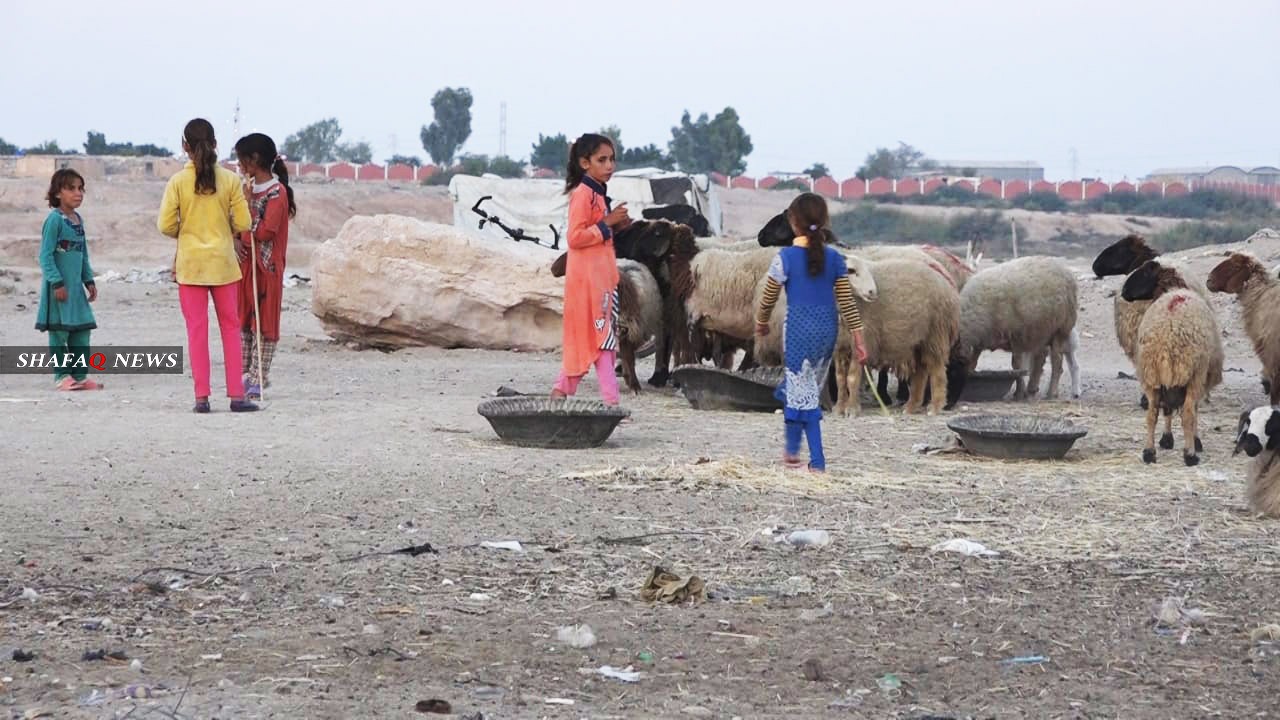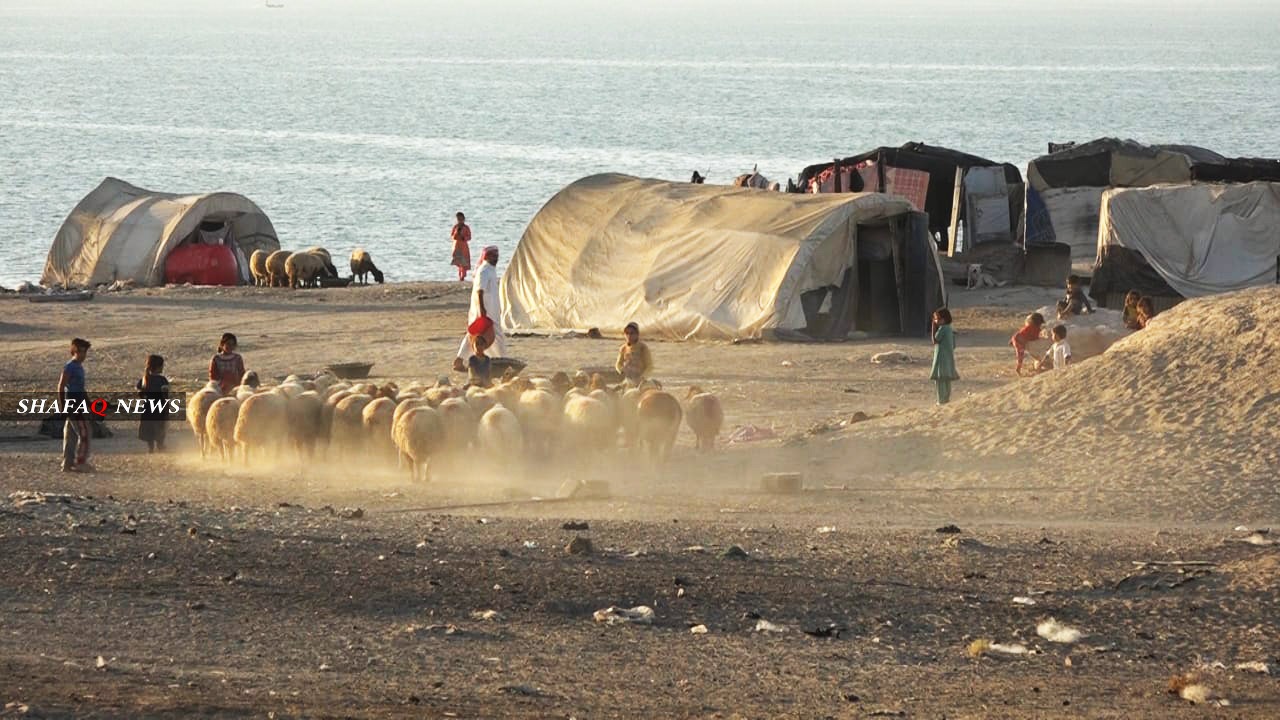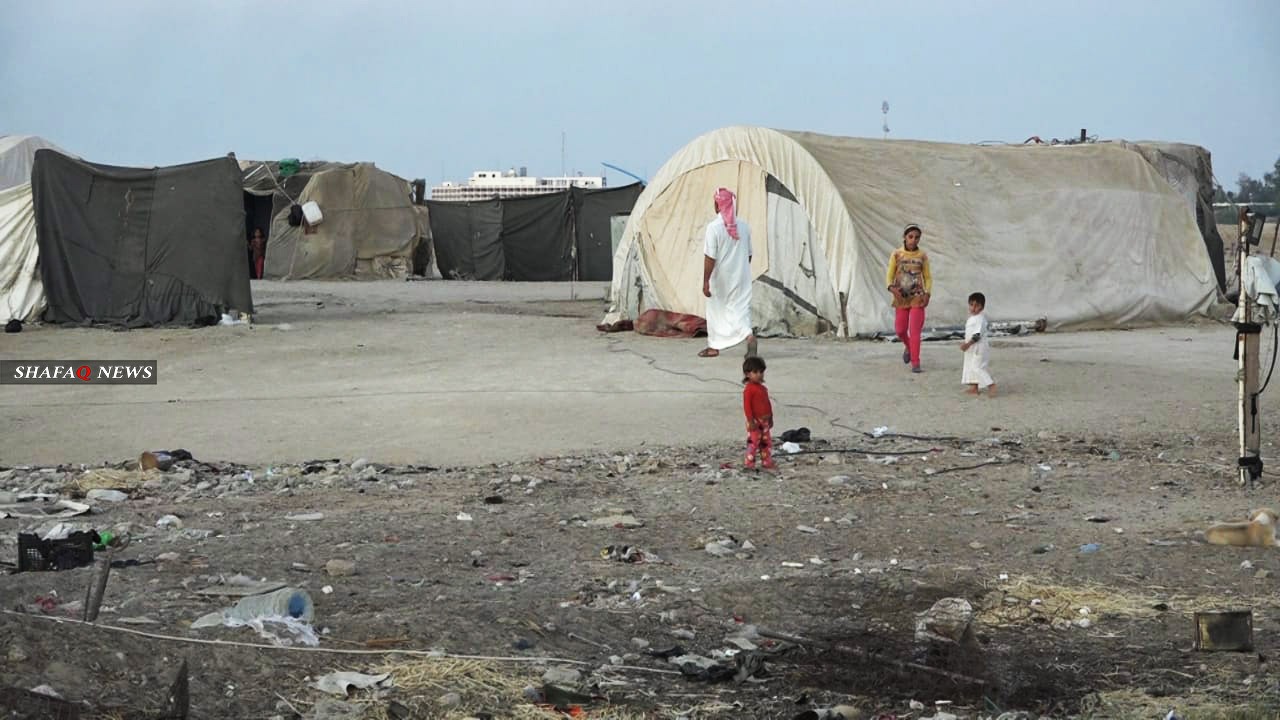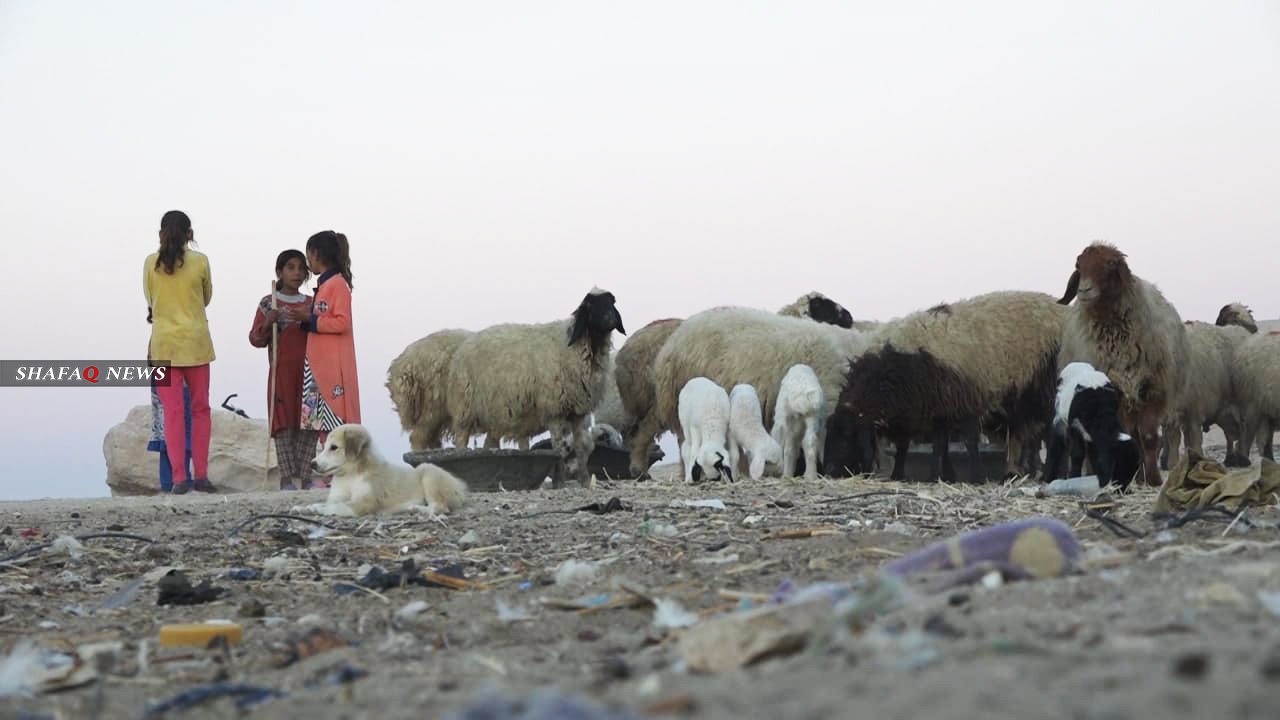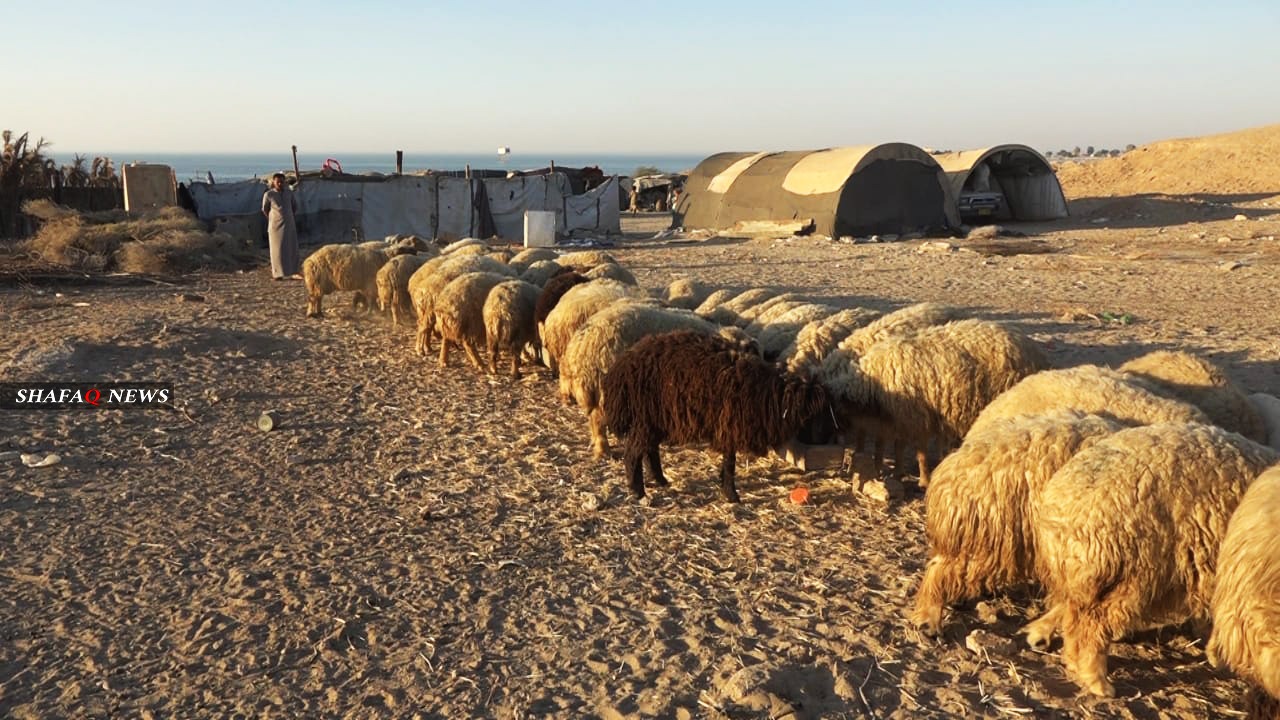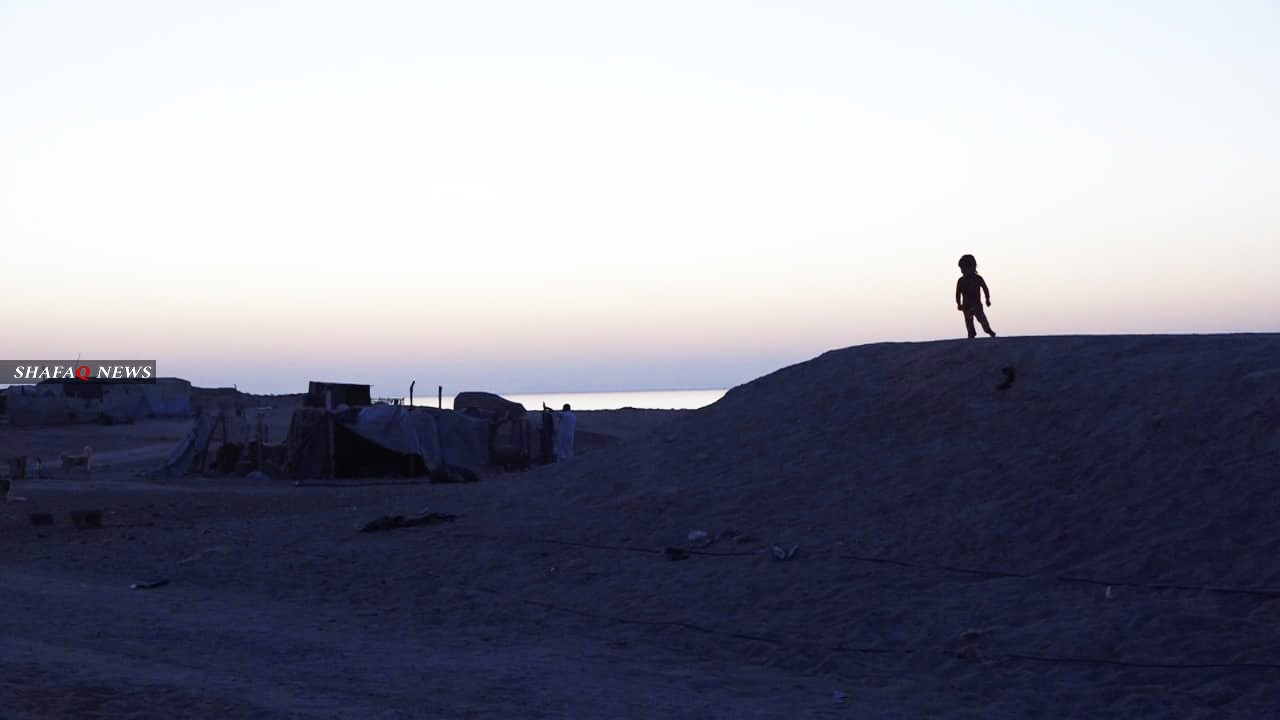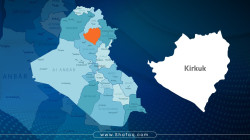Imminent danger threatens the ancestors’ profession in western Iraq
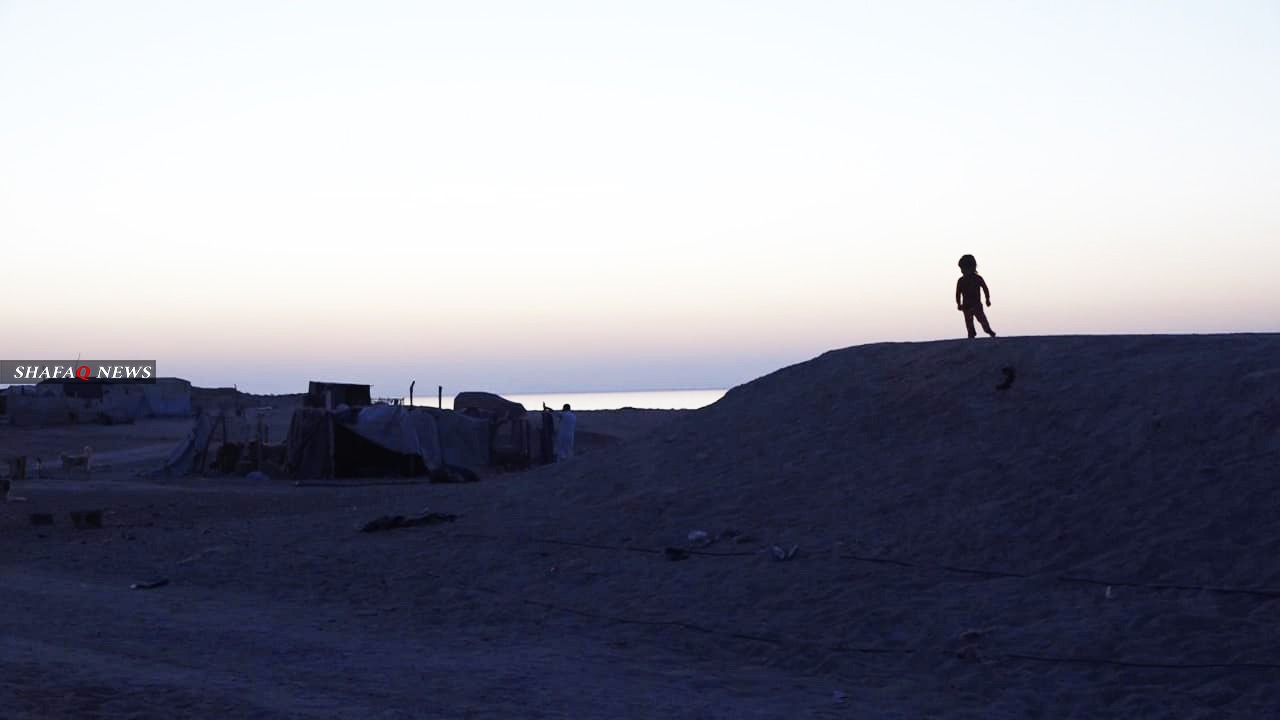
Shafaq News/ The shepherds’ distress in western Iraq was exacerbated this year due to the rain season’s delay. Those shepherds hoped to make up for the losses they suffered during the years of ISIS occupation and the subsequent military operations that caused the loss, theft, or death of thousands of their herds.
Poor rain has led to the migration of shepherds to other areas within the governorate to seek green grass -their primary source of livelihood, on which their sheep feed demanding, at the same time, the Iraqi Ministry of Agriculture to provide fodder and veterinary supplies at subsidized prices.
800 seasonal grazing areas facing extinction
According to a survey conducted by the local government in Al-Anbar, the governorate has more than 800 grazing areas dependent on seasonal rains -serving as livestock of at least 10,000 shepherds. Those areas are concentrated in Rutbah, east of Ramadi, and east and north of Fallujah.
Demands for government support
Shepherds in Al-Anbar say that their residence's place is linked to where sheep live; they move twice or more a year -one of them is with the rainy season. Indicating through interviews with Shafaq News agency that they cannot live without their sheep, as it is their livelihood’s source.
The shepherds also complain about the high prices of feed -as the price of fodder’s ton is more than 350,000 Iraqi dinar that prompted many shepherds, like Abdul Rahim Jassim, to ask the responsible authorities to provide the feed as a temporary alternative until the long-awaited rains; just like neighboring countries such as Kuwait and Saudi Arabia. As they provide feed for animals at reduced prices to support livestock.
Jassim, who lives near the tourist city (southeast of Ramadi), warns of the imminent high prices of local meat, as a result of high prices of feed with delayed rainfall -and this will reflect on the poor citizen. Jassim also blamed the government for not providing fodder to herders -even at a subsidized price, and for not stopping the greed of its traders.
Iranian and Turkish competitors
Hatem al-Obaidi, one of the most prominent sheep traders in those areas -for having more than 10,000 sheep, said to Shafaq News agency, "feeding the herds has become very expensive", and complained about the continued flow of imported meat -especially Turkish and Iranian meat, "Because of the high price of fodder, the price of domestic meat has risen slightly, but imported meat is cheaper, so the damage to us is even greater”.
"I have lost 200 million dinars this year, as a result of high feed prices and imported sheep’s cheap prices. I am thinking of leaving this profession and distributing sheep to family, relatives, and friends instead of selling them at low prices”, Hatem added.
Shepherd Mahmood Sa’ad said to Shafaq News agency, “The government has put us at the mercy of fodder traders who manipulate prices as they please. But I don't want to leave this profession, it is the profession of our ancestors. I will remain committed to preserving the country's livestock and achieving self-sufficiency”.
Government explanation for lack of support
"The government supplies the shepherds with the feed and vaccines needed at half price. the government pays 200,000 dinars per ton", an official at the Ministry of Agriculture stated to Shafaq News agency.
The official attributed the lack of support to the increase in sheep breeders’ number, random breeding, and the delay in preparing a grazing map. Noting that all these reasons led to this "confusion".
"There are shepherds who prefer imported fodder instead of local supplies provided by the government -for reasons related to their efforts to rapidly fatten livestock for sale. The ministry is working to prepare the shepherds’ requirements for the current season in all of the country”, the official added.
